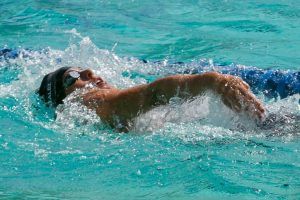
10 Motivational Swimming Quotes to Get You Fired Up
Looking for some awesome swim quotes? Give this list of motivational swimming quotes a look the next time you need to rock and roll in the pool.
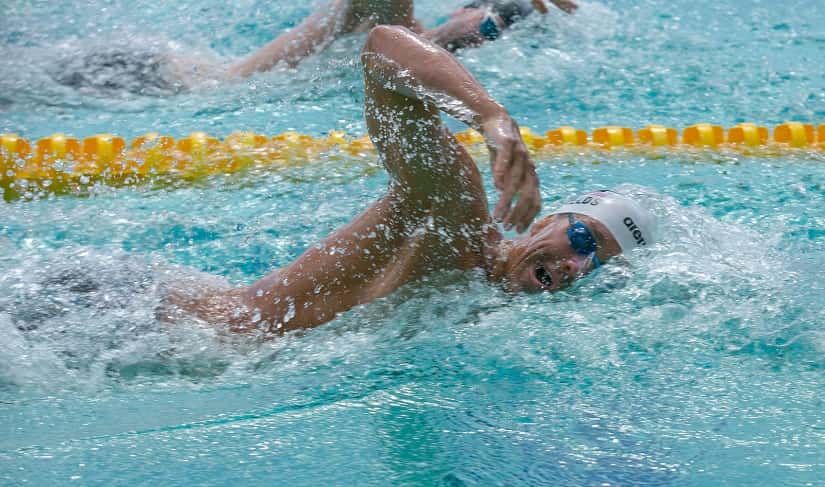
The right question at the right time can alter the course of our swimming.
Whether it’s after a great swim practice (“How can I replicate those results more often?”) or after a terrible meet (“How can I make sure that never happens again?”), asking the right questions can lead us towards creating better answers and faster swimming for ourselves in the pool.
Here are five questions that you can use repeatedly over the course of a season to help propel your training and results in competition:
Champion swimmers are built in practice.
They are honed and sculpted through a seemingly endless number of sessions and meters in the water. Each day you are given an opportunity to develop the result you want: are you doing the things each day that will give you the outcome you desire?
Essentially, this question is asking you what the process of becoming the swimmer you want to become looks like.
From sunrise to sunset, what does the typical day of the champion swimmer consist of in your case? What are the things you are working on each day, what are the blades you are sharpening, where is your focus and energy going to go on a daily basis?
The best swimmers in the world don’t just produce the best results, they produce the best process.
Our biases are sneaky little things. They convince us that we are working harder than we really are, that we are showing up to more practices than we are, and that we are doing all the other tangibles—getting enough sleep, managing our nutrition—to the best of our ability.
Sitting down at the end of each workout and trying to distance yourself from them is critical in developing free-range self-awareness: one of the things that truly separates champions from the rest of us.
You don’t need to write a 1500 word essay in your training journal, a simple 1-5 ranking each time you get out of the water will keep you more accountable and on top of pushing yourself in practice.
News bulletin: swimming is a competitive sport. Performed with other swimmers. Competitively. In a pool.
Which means that at some point the way we perform is going to be measured up against how others swim. As a result, we can get lost in comparison-making, often to the detriment of our performance.
Obsessing about how other swimmers are training and performing can be a motivational boost—it lights a fire under your butt to push yourself—or it can be the kindling of anxiety and stress.
The next time you catch yourself getting bent out of shape from something you can’t control, step back and refocus on something you can control. Your preparation. Your technique. Your pre-race routine. And so on.
A lot of swimmers have no problem displaying awesome character when things are going well.
Enthusiastically showing up to practice after a great meet, or doing the workout when you “feel like it”, or cheering on a teammate when you are in a good mood—these things are easy to do when our swimming is going our way.
It’s when things that aren’t going well where your true character reveals itself.
Your attitude and character are reflected in the moments of adversity. That’s when we really see what you are like. When you have a bad workout. Or when you get DQ’d. Or when you are tired and exhausted and the last thing you want to do is head back to the pool for another round of pace 100’s.
Not all of us are masters of the pep talk, or like to be the vocal leader—but any one of us can lead by example.
You can be the one to complete the set even when coach isn’t watching. You can be the one to keep track of the reps and intervals. You can be the swimmer who doesn’t give up on the interval when it gets tough. And you can be the one to help take down the equipment after practice without being told or asked to.
Leadership isn’t about being the fastest swimmer in the pool, or giving cinema-worthy speeches—the most powerful form of leadership is example and action.
This kind of leadership has another side-benefit: by encouraging others to rise to your level you are creating a culture that promotes success for everyone, including you.
This New Mental Training Book Will Help You Swim Like a Rock Star This Season. Ready to take your swimming to the next level? Learn more about our awesome mental training book that will help you rock out with your socks out, whether it’s in practice or competition.
10 Things That Have Nothing to Do with Talent. Much is made about having lots of talent. But talent alone doesn’t make champion swimmers. And it’s something you also don’t control. Here’s what to focus on instead.
How Swimmers Can Develop World-Class Resilience. Grit, mental toughness, fortitude—whatever we’re calling it this week, is essential to your swimming success. Here’s why resilience is the difference maker you’ve been looking for in the pool.
Subscribe to the YourSwimLog.com newsletter and get tips and advice on how to swim faster every weekday morning, straight to your inbox.
Join 33,000+ swimmers, coaches, and swim parents learning what it takes to swim like a boss.
Unsubscribe anytime. Email will never be shared or sold.

Olivier Poirier-Leroy Olivier Poirier-Leroy is the founder of YourSwimLog.com. He is an author, former national level swimmer, two-time Olympic Trials qualifier, and swim coach.

Looking for some awesome swim quotes? Give this list of motivational swimming quotes a look the next time you need to rock and roll in the pool.
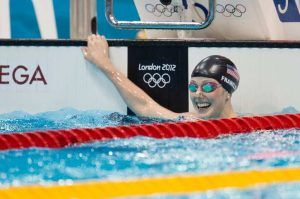
Missy Franklin’s book Relentless Spirit details the triumphs and tribulations on the path to becoming an Olympic champion. Here is a review of the book, along with key takeaways, quotes and highlights…
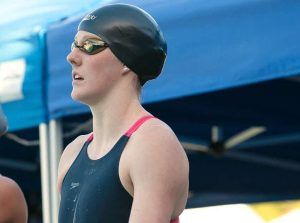
American swim star Missy Franklin captivated the world during her reign as one of the best swimmers on the planet. Here’s how she built her self-confidence going into big swim meets.
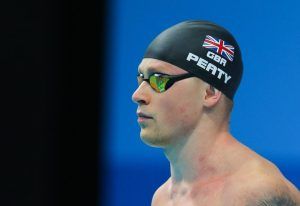
If you want to swim faster and maximize your preparation in the water, make sure you are focused on real solutions and not fake problems.
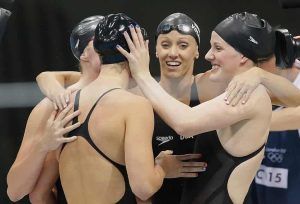
Ever wondered why some swimmers always swim ridiculously fast on relays? Here’s how the kind of motivation you use behind the blocks influences how you perform in the water.
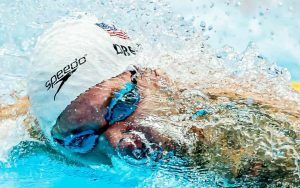
This is the ultimate guide for helping age group swimmers get highly motivated. You are going to learn about some proven techniques and tools that you can start using today to light your motivation on fire. (And keep it burning bright after that first burst of motivation fades away.) If

LANE 6 PUBLISHING © 2012-2024 · PRIVACY POLICY · RETURN POLICY · TERMS OF SERVICE · AFFILIATE DISCLOSURE